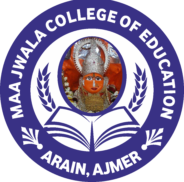English Literature
English Literature Overview
Studying English literature offers a profound exploration of human expression, cultural evolution, and literary artistry. It immerses students in a rich tapestry of works spanning centuries, from Shakespearean plays to modern novels, poetry, and essays. Through close analysis, students develop critical thinking and analytical skills, gaining a deep understanding of language and narrative structures. This field of study facilitates a journey through diverse perspectives, historical contexts, and thematic complexities, fostering empathy and broadening intellectual horizons. Engaging with both canonical texts and lesser-known works cultivates an appreciation for literary craftsmanship and the power of storytelling. Studying English literature reveals the transformative power of words, igniting lifelong curiosity and a lasting passion for literature.
A BA in English Literature provides a thorough academic exploration of the written word, covering a wide range of literary genres, periods, and cultural contexts. This interdisciplinary program enhances critical thinking, research, and communication skills while deepening students’ understanding of literature’s social, historical, and philosophical significance. Students analyze both classic and contemporary texts, engaging with diverse perspectives and narrative techniques. The program encourages independent thought, fosters cultural awareness, and nurtures a lifelong appreciation for literature’s power. Graduates acquire a versatile skill set that is applicable to various professions, including publishing, academia, journalism, and creative industries.
Objectives of the Program
1. Develop Critical Thinking: Analyze and interpret texts to cultivate a nuanced understanding of their meaning and implications.
2. Enhance Cultural Literacy: Explore diverse perspectives, historical contexts, and societal issues reflected in literary works.
3. Hone Communication Skills: Refine both written and oral expression, fostering effective and articulate communication.
4. Foster Empathy and Understanding: Engage with characters and narratives to develop empathy and gain insight into the human experience.
5. Appreciate Literary Craftsmanship: Recognize and value the artistry, techniques, and beauty inherent in well-crafted literary works.
Programme Outcomes
- Improved critical thinking and analytical skills through textual analysis.
- Expanded cultural awareness and understanding through diverse literary perspectives.
- Enhanced communication skills for effective written and oral expression.
- Developed empathy and emotional intelligence through engaging with characters and narratives.
- Broadened knowledge of historical and social contexts reflected in literature.
- Increased appreciation for the power of storytelling and narrative structures.
- Heightened ability to interpret and evaluate complex ideas and themes.
- Strengthened research and information literacy skills for academic inquiry.
- Cultivated a lifelong passion for reading and literature.
- Expanded career opportunities in fields such as publishing, education, and media.
Academic & Job Prospects in English Literature
- Content writer or copywriter for marketing and advertising agencies.
- Communications specialist or corporate communications manager.
- Editor or proof reader for publishing companies or media organizations.
- Public relations officer or media relations manager.
- Market researcher or consumer insights analyst in the creative industries.
- University professor or lecturer in English Literature or related fields.
- Researcher or scholar specializing in literary studies or critical theory.
- Academic advisor or program coordinator in English or humanities departments.
- Curriculum developer or educational consultant in literature and language studies.
- Editor or reviewer for academic journals or publishing houses.
Some of the main industries offering employment opportunities to English Literature
- Education
- Publishing
- Media and Journalism
- Advertising and Marketing
- Public Relations
- Content Creation and Writing
- Research and Analysis
- Non-profit Organizations
- Government and Public Service
- Cultural Institutions
Following are the papers in English literature:
Poetry and Drama
Tennyson A. Jayaprabha
Browning
T.S. Elliot Girish Karnad
Kalidas, Bhavabhuti, bhartrahari Eugene O’ Neil
Prose and Fiction:
Munshi Premchand R.K. Narayan
Intizar Hussain Charlotte Bronte
Ismat Chugtai
Ambai
Paper & Prose and Fiction:
(Bacon, Leigh Hunt, M.K. Gandhi, s. Radhakrishnan, R. K. Narayan, George Erwell, E. Hemingway)
(Prose appreciation, formal communication, Report writing)
